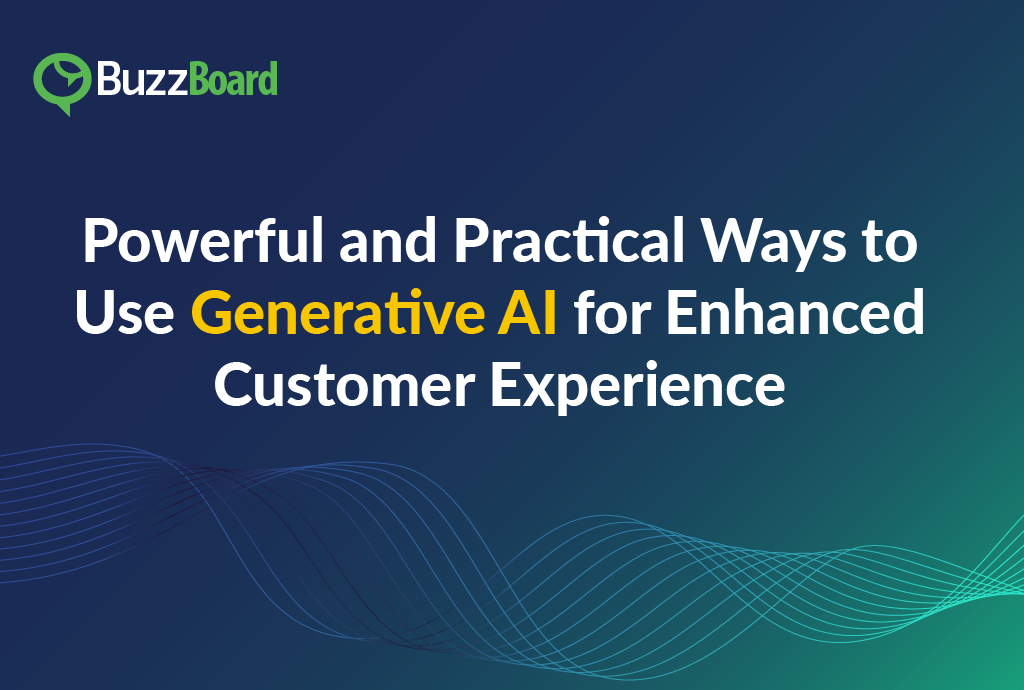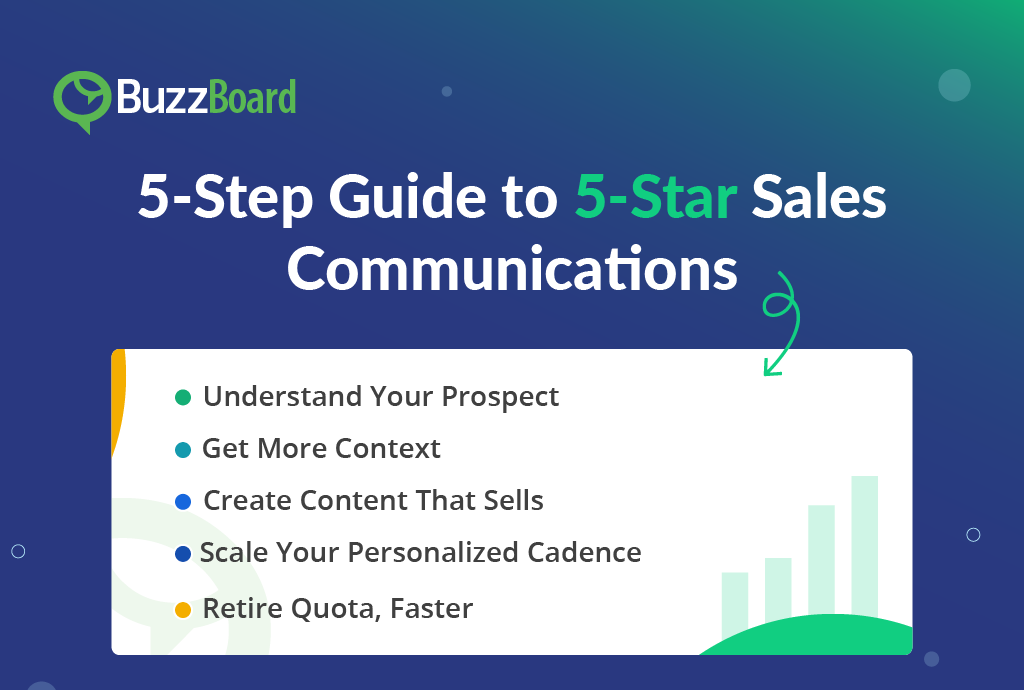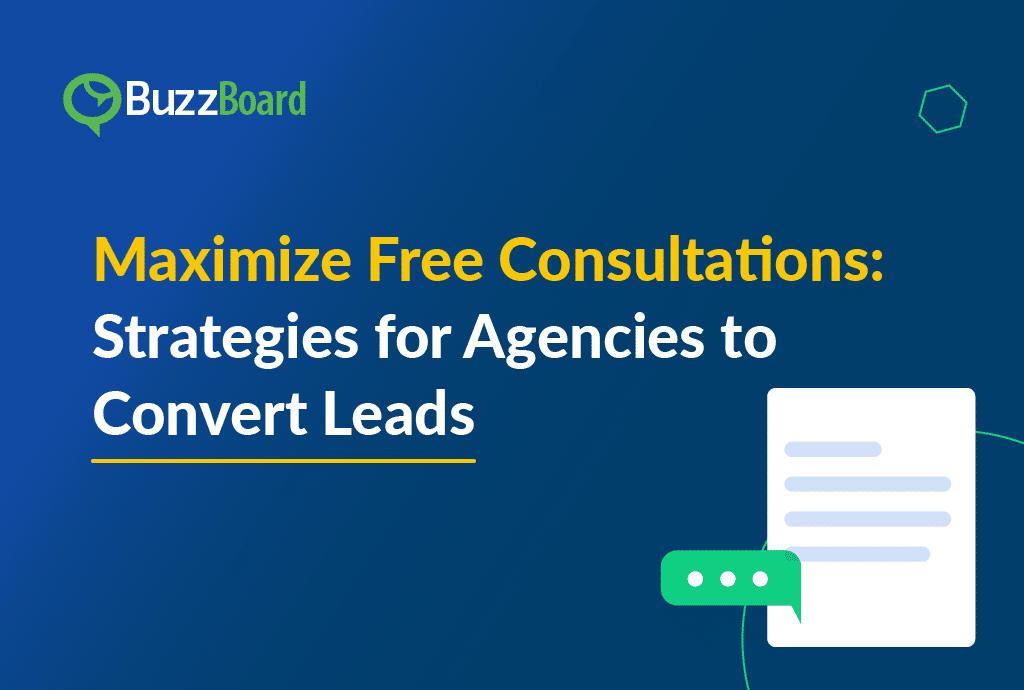In the realm of business-to-business (B2B) interactions, where customer experience reigns supreme, innovative technologies continue to reshape the way companies interact with their clients. However, enhancing customer experience in B2B or B2SMB scenarios presents unique challenges, often characterized by intricate negotiations, diverse stakeholder involvement, and the need for tailored solutions. This is where the transformative potential of generative artificial intelligence comes to the forefront.
A fresh survey discloses that “81% of leaders say their company has already established, or is currently developing, internal generative AI policies.”
From automating complex proposal generation to customizing product recommendations, generative AI has the potential to streamline processes, drive efficiency, and foster innovation, ultimately leading to an elevated customer experience.
So here’s an attempt to decipher the transformative power of generative AI and its profound implications for enhancing customer experience (CX) in the B2B realm. By getting a sense of the most popular generative AI use cases, we can uncover how it has the potential to cultivate deeper connections, drive innovation, and pave the way for more personalized and effective B2SMB interactions.
In the race to deliver exceptional customer experiences, generative AI stands as a frontrunner, ushering in an era where personalization is not just a feature but the very essence of modern business interactions.
CX: Marketers’ Soft Spot Calling for an Upswing
66% market leaders are willing to adopt generative AI to enhance customer experience. (Insight)
Market leaders are constantly seeking ways to maintain their competitive edge and provide unparalleled value to their customers. In this pursuit, the adoption of generative AI for customer experience has emerged as a strategic imperative
Driving innovation and revenue growth being the top two priorities of business owners, customer experience remains to be that soft spot that demands way more improvisation. Luckily, generative AI has turned out to be highly potent in fixing seller-buyer misalignments. By leveraging advanced machine learning techniques and neural networks to analyze vast datasets, GenAI identifies nuanced patterns and tailoring interactions in real-time. This means that each customer engagement becomes a unique and highly personalized experience, driving customer satisfaction to new heights.
Generative AI has already manifested successful use cases, including data, code, and content generation, human-like interactivity, contextuality and adaptability, support for automation as well as data-driven decision-making processes, understanding language, etc.
The Need for Outpacing the Existing Chatbots
We all agree that chatbots play a pivotal role in modern customer interactions in terms of efficiency, accessibility, and scalability. Now, you might be having an engaging website with a chatbot facility for your visitors and customers, and still your reps could be struggling to manage buyer relationships. Sure, your traditional AI chatbot services are making space for more value-added work for your reps or customer support team, but it’s not letting your business optimize this functionality or address buyer needs accurately. This is because your chatbot is too much of a bot with little to no human-like interaction qualities.
Well, the usual chatbots built for customer communications so far lack intelligence and human empathy, which has become indispensable for a natural and conversational interaction. There’s no doubt that we have surpassed the era when automated responses used to amuse us—the world has become smarter and more tech savvy, which is pushing businesses to look beyond the existing chatbots.
According to Zendesk’s Cristina Fonseca, VP of product and head of AI, “Traditionally, AI and chatbots have helped to free up customer service teams from manual and repetitive work, allowing them to focus on more complex or value-adding work where only a human agent will do. Generative AI is used to not only do that, but to also make automated responses to customer enquiries smoother, faster and more helpful, while providing an extra layer of insight and context to agents to help them fulfill their job to even higher standards.”
Simply put, GenAI is faster, more reliable, as it provides a full context of customer enquiries, capable of generating a better employee experience, and possesses human-like intuition to assert personalized experiences.
Explore the Benefits of AI-powered Avatars
The radical changes in technology have evoked a deep sense of personalization in every aspect of B2SMB sales and marketing techniques. Experts are of opinion, 2023 and onwards, this personalization, rather hyper-personalization is going to be the key driving force to form, sustain, and affirm buyer-seller relationships.
AI-powered avatars can definitely add one level of humanization to B2B sales and marketing operations.
So, What Is an AI-powered Avatar?
An AI-powered avatar refers to a digital representation of a human or an entity that is driven and controlled by AI technologies. These avatars are designed to simulate human-like interactions, behaviors, and communication, often with the aim of engaging with users or customers in a more natural and relatable manner. AI-powered avatars combine various technologies, including natural language processing (NLP), machine learning, computer vision, and speech recognition, to enable dynamic conversations and interactions.
How Can AI-powered Avatars Solidify Customer Experience and Loyalty?
From offering multilingual support to analyzing emotions and sentiments, AI-powered avatars could play the role of virtual assistants with 24/7 availability, making it an ideal service across all customer-facing industries.
Overall, AI-powered avatars represent a convergence of AI technologies and human-centric design, aiming to create more engaging, efficient, and effective interactions between humans and machines.
Market leaders are constantly seeking ways to maintain their competitive edge and provide unparalleled value to their customers. In this pursuit, the adoption of generative AI for CX has emerged as a strategic imperative. And this is just the beginning—marketers have only started to measure the infinite power of generative AI, and in the near future they might not only meet but exceed the evolving customer expectations.
So, as we look ahead, let’s remember that generative AI is way bigger than just a technology; it’s the catalyst for a new chapter in sales and post-sales customer experiences.








